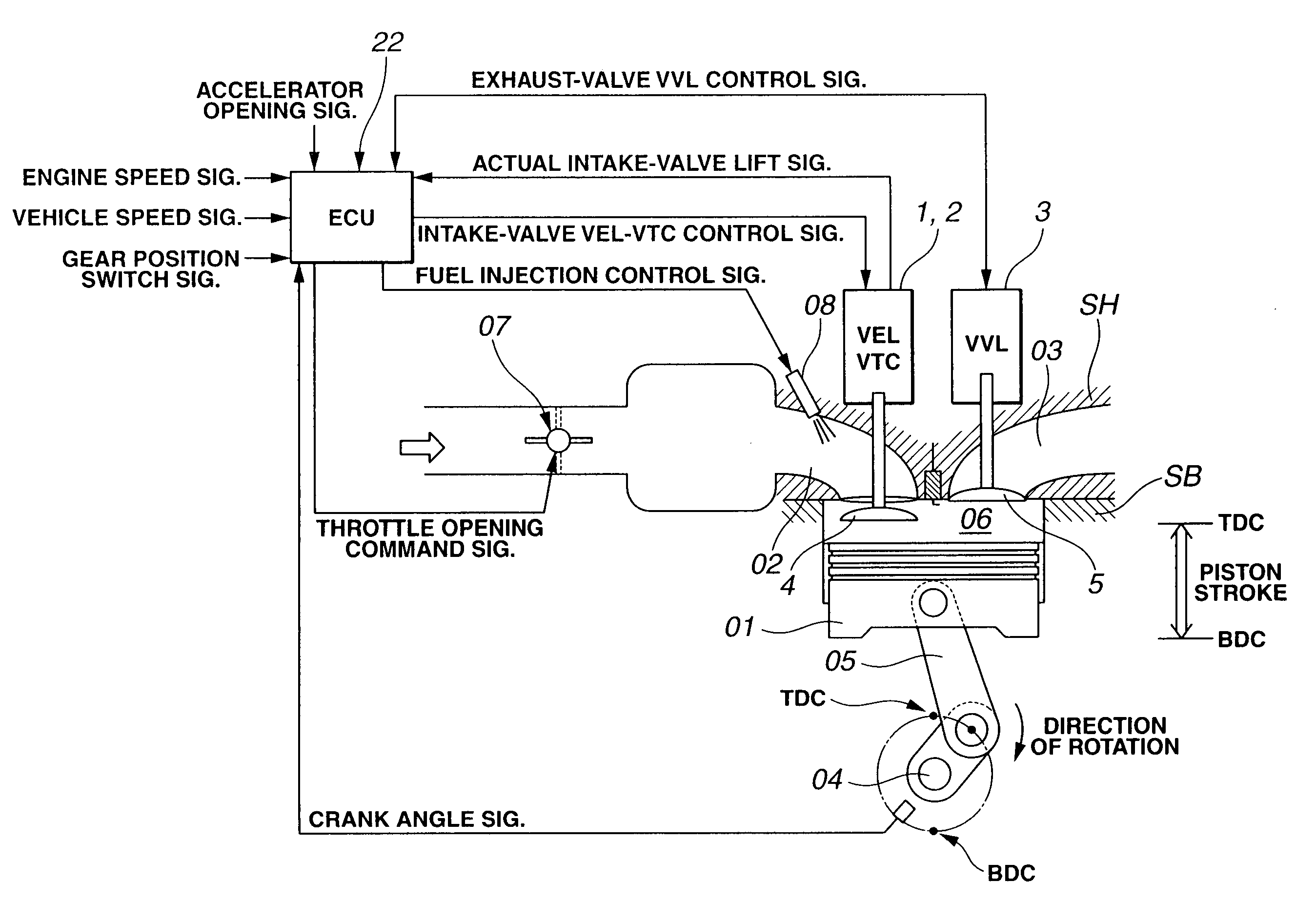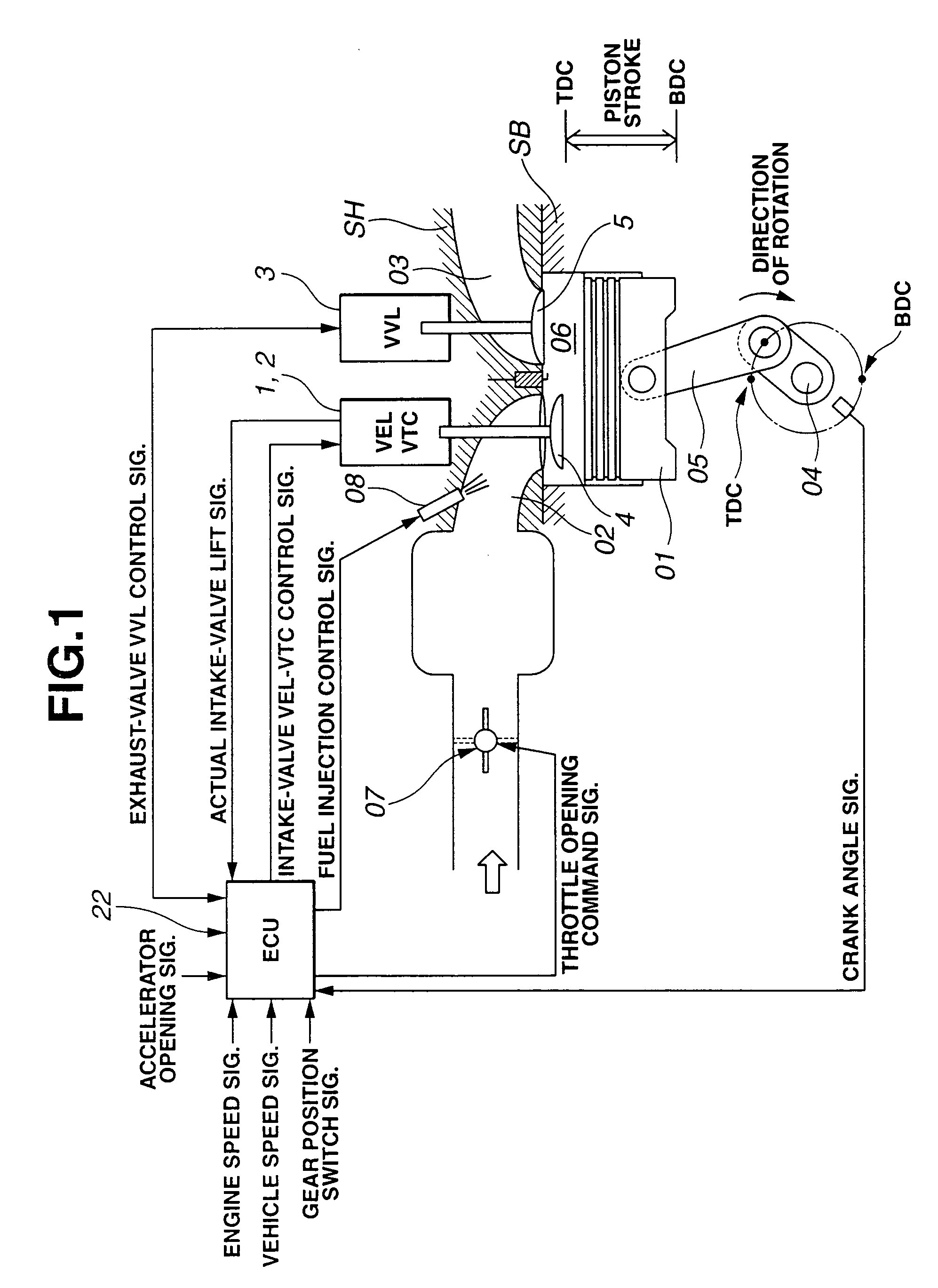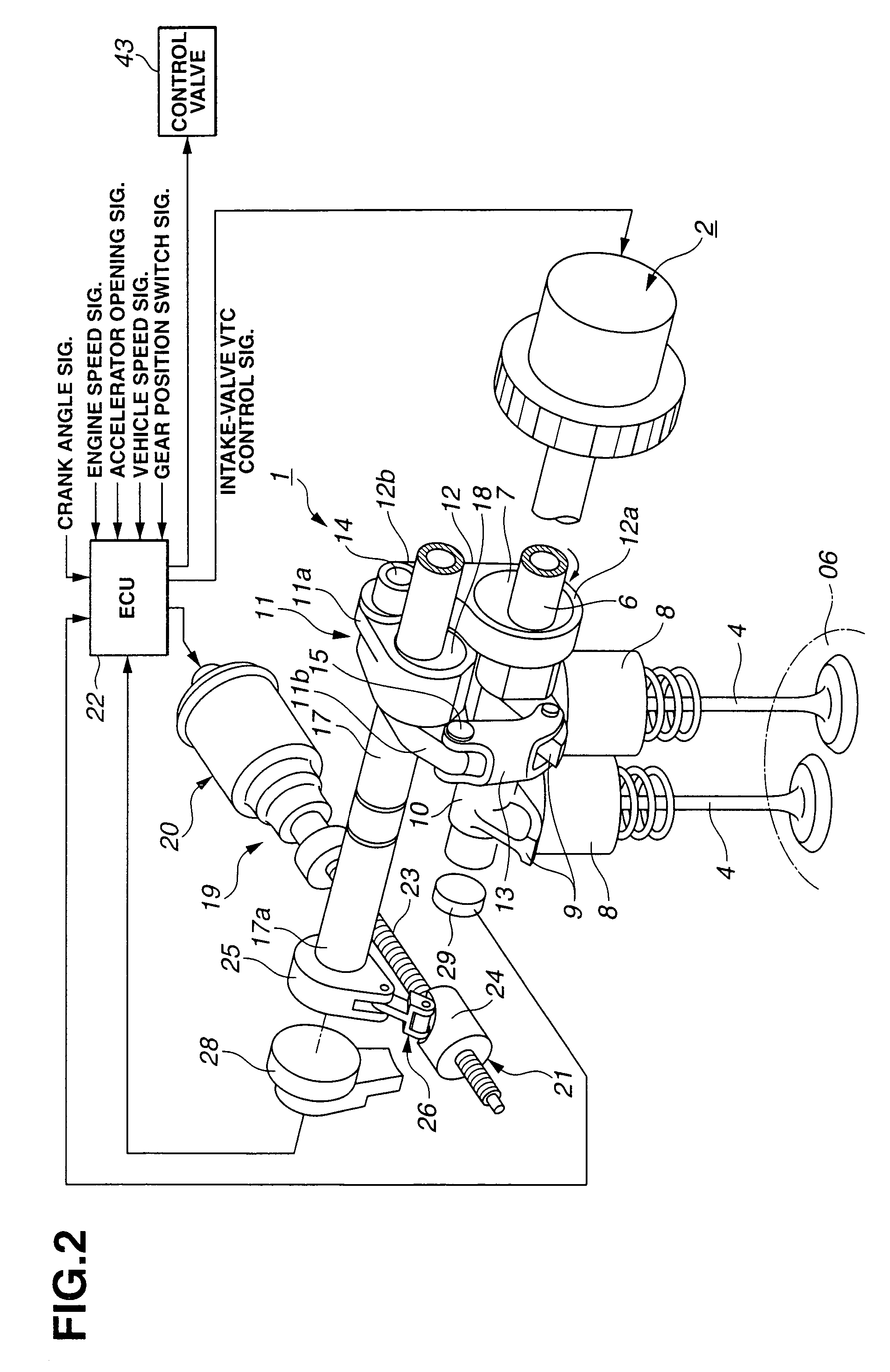Cylinder cutoff control apparatus of internal combustion engine
a control apparatus and internal combustion engine technology, applied in the direction of electric control, machines/engines, output power, etc., can solve the problems of increasing fuel consumption rate, deteriorating fuel economy, and inability to convert or use combustion work as effective work, so as to reduce reduce the tendency for the engine braking effect to be greatly reduced, and effectively suppress any unnatural feeling
- Summary
- Abstract
- Description
- Claims
- Application Information
AI Technical Summary
Benefits of technology
Problems solved by technology
Method used
Image
Examples
Embodiment Construction
[0042]Referring now to the drawings, particularly to FIGS. 1–3, the cylinder cutoff control apparatus of the embodiment is exemplified in a valve operating device mounted on a six-cylinder internal combustion engine having four valves per cylinder, namely two intake valves 4, 4 (see FIG. 2) and two exhaust valves 5, 5 (see FIG. 3). As described later, the engine cylinder cutoff apparatus of the embodiment is able to stop or cut off, depending on engine / vehicle operating conditions, a first group of engine cylinders, while a second group of engine cylinders are working.
[0043]The construction of the internal combustion engine, to which the cylinder cutoff control apparatus of the embodiment can be applied, is hereunder described in reference to the system diagram of FIG. 1. The engine of FIG. 1 is constructed by a cylinder block SB having a cylinder bore, a reciprocating piston 01 movable or slidable through a stroke in the cylinder bore, a cylinder head SH on the cylinder block SB, a...
PUM
 Login to View More
Login to View More Abstract
Description
Claims
Application Information
 Login to View More
Login to View More - R&D
- Intellectual Property
- Life Sciences
- Materials
- Tech Scout
- Unparalleled Data Quality
- Higher Quality Content
- 60% Fewer Hallucinations
Browse by: Latest US Patents, China's latest patents, Technical Efficacy Thesaurus, Application Domain, Technology Topic, Popular Technical Reports.
© 2025 PatSnap. All rights reserved.Legal|Privacy policy|Modern Slavery Act Transparency Statement|Sitemap|About US| Contact US: help@patsnap.com



